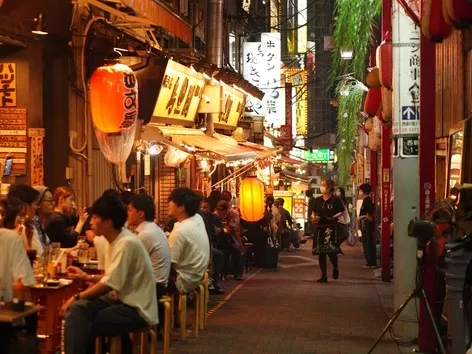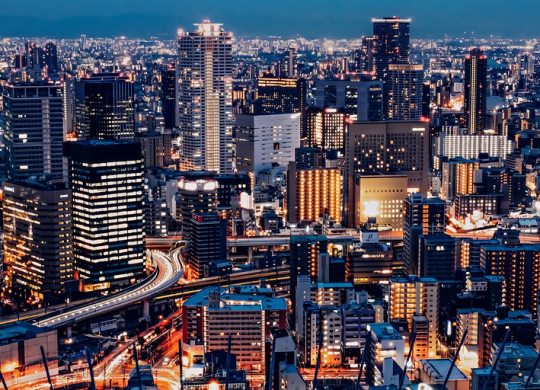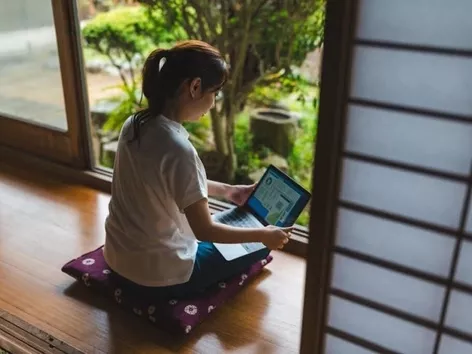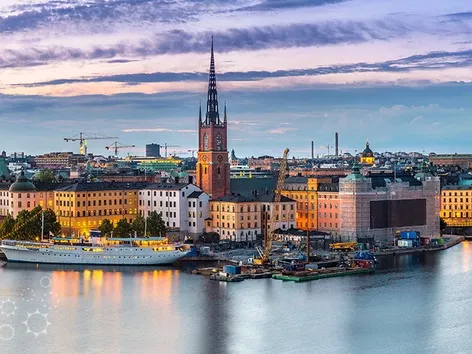Cost of living in Japan: expenses for housing rent, food, transport and monthly budget

Japan attracts expats with its rich cultural traditions, delicious cuisine, technological advancements, and stunning natural beauty. However, before planning a move to Japan, it is important to determine whether the cost of living in the country is affordable compared to the country you currently reside in. Find out how much it will cost to live in Japan in 2024/2025
Japan is one of the most developed countries in Asia and the world. It has favorable living conditions, a developed economy, a good social sphere and significant career prospects, especially for IT specialists. These factors attract thousands of expats to the country every year, including citizens of Nepal, Mexico, Belarus and Algeria.
However, before planning a move, it is important to analyze the local cost of living. Read more about prices in Japan and what expenses expats should expect when planning to move to the country in this article.
Is it expensive to live in Japan?
In recent years, Japan has slightly dropped in the ranking of the most expensive cities in the world. Today, life in Japan is cheaper than in many countries, including the UK, Australia and even New Zealand.
Most of the expenses, as a rule, are for renting a home. Also high are the costs of transportation or owning a car. You can adjust your monthly expenses by choosing smaller cities to live in or by preferring local products.
The cost of living in Japan for a single person is ¥157,175 ($1,097). Although this estimate will vary depending on your location and personal spending habits. The monthly cost for a family of four is ¥404,034 ($2,818).
Rent and utilities prices in Japan
The cost of housing in Japan varies depending on location. Tokyo, home to 11% of the country’s population, is generally significantly more expensive than the rest of the country.
The average monthly rent for a one-bedroom apartment in Tokyo (20-40 square meters), excluding utilities, is between ¥50,000 and ¥70,000 ($350 to $450). Rents for similar-sized apartments in central Tokyo and popular areas nearby typically start at around ¥100,000 ($650).
In other cities, a one-bedroom apartment in Japanese cities costs around ¥82,000 ($562).
- Utilities
Usually, utilities such as electricity, gas, and water are not included in the rent. The average cost of utilities for a single person is around ¥13,000 ($850) per month: around ¥7,000 ($46) for electricity, ¥3,500 ($23) for gas, and ¥2,500 ($16) for water. Gas water heaters and stoves are common in most homes, although some modern homes may have induction stoves instead.
Residents who want to have internet access at home should consider purchasing a pocket Wi-Fi device (monthly fee from ¥3,500 - $23) or subscribing to broadband or fiber internet access (monthly fee from ¥4,500 - $30).
Important! The initial costs of renting a place can be quite high, such as paying security deposits. Sometimes this amount is five to six times the monthly rent.
Food costs in Japan
The amount of food costs in Japan directly depends on whether you choose to eat out or cook for yourself.
- If you like to cook at home, monthly grocery costs can average around ¥38,000 ($250) per person. Choosing local Japanese and seasonal products can reduce these costs. If you live near a 商店街 (shoutengai) – a local shopping street – you’re in luck, as these markets can offer much lower prices than most supermarkets.
- Eating out can affect your cost of living in Japan. Many Japanese people eat out regularly. A meal at an inexpensive local restaurant can cost anywhere from ¥500 to ¥1,500 ($3.40 – $10 USD). This provides a budget-friendly way to enjoy authentic Japanese cuisine.
A meal at a more average restaurant will cost around ¥1,000 to ¥3,000 ($6.50 to $20), while higher-end restaurants such as ryotei have no upper price limit. During lunch, many restaurants offer inexpensive teishoku (set menus) for around ¥1,000 ($6.50).
To move, travel or work safely in a new country, you will need health insurance. You can apply for an extended policy on our website here.
Transportation Costs in Japan
Japan's efficient, highly modern public transportation system is characterized by its punctuality, comfort, and speed. It is known for its bullet train system that connects Tokyo to other cities and major islands. Even with technological advances, the public transportation system is on average cheaper than in most countries around the world.
In Tokyo, subway fares vary depending on distance, but range from ¥170 to ¥320 ($1.16-2.19).
Cycling is a very economical way to get around, especially if you live in the city. Bicycle racks can be found near most train stations and shopping malls.
Local buses in major cities such as Tokyo and Osaka complement the train and subway networks and are the main means of public transportation.
Entertainment prices in Japan
For entertainment, most cities offer cinemas (ticket prices range from ¥1,500 to ¥2,000 – $10-13), karaoke (hourly rates start at ¥300 – $2), and game centers. Theater performances and live concerts are held almost all year round. Large cities such as Tokyo and Osaka tend to have more live performances by popular local and international artists. Ticket prices start at around ¥6,000 ($40) for local artists and around ¥12,000 ($80) for foreign artists.
Healthcare costs in Japan
Health insurance costs in Japan are around ¥155,000 ($1,027) per year.
Japan is a promising country for expats to move to, where the relatively high cost of living is offset by one of the highest salary levels in the world.
Reminder! Japan attracts many expats because it offers a moderate cost of living and career prospects. We have already discussed how to move to Japan in 2024/2025 for a US citizen.
Ihor Usyk - head of Visit World's legal department
Products from Visit World for a comfortable trip:
Checklist for obtaining a visa and necessary documents for Japan;
Legal advice on immigration to Japan;
Travel insurance for foreigners in Japan;
Medical insurance all over the world.
Recommended articles
2 min
Work
Job in Japan for expats in 2024: labor market, work visa and basic requirements
Japan is a promising country for expats to move to, which attracts high quality of life and career prospects. Considering that in recent years the state has increasingly opened its doors to foreigners, local employers are increasingly hiring specialists from abroad. Find out what are the features of the Japanese labor market and how a foreigner can get a work visa in the country
04 lis. 2024
More details2 min
Work
Cost of living in Germany: expenses for housing rent, food, transport and monthly budget
Germany is one of the key countries of the European Union, which can guarantee a high standard of living not only for its citizens, but also for expats and migrants. Germany is chosen for temporary or permanent relocation, because it has a strong economy, developed infrastructure, rich culture and stability. Find out how much it costs to live in Germany in 2024-2025
05 lis. 2024
More details1 min
Residence permit
Japan Digital Nomad Visa: How to Apply?
In 2024, Japan launched a digital nomadic visa that will allow remote workers to live and work in the country for 6 months. Find out what are the requirements for expats and what is the procedure for issuing a document
06 lis. 2024
More details2 min
Work
Cost of living in Sweden: expenses for housing rent, food, transport and monthly budget
Sweden is one of the key countries of the European Union, which expats choose for temporary or permanent relocation, because it has a high standard of living, strong economy, developed infrastructure, rich culture and stability. Find out how much it costs to live in Sweden in 2024-2025
12 lis. 2024
More detailsAll materials and articles are owned by VisitWorld.Today and are protected by international intellectual property regulations. When using materials, approval from VisitWorld.Today is required.
